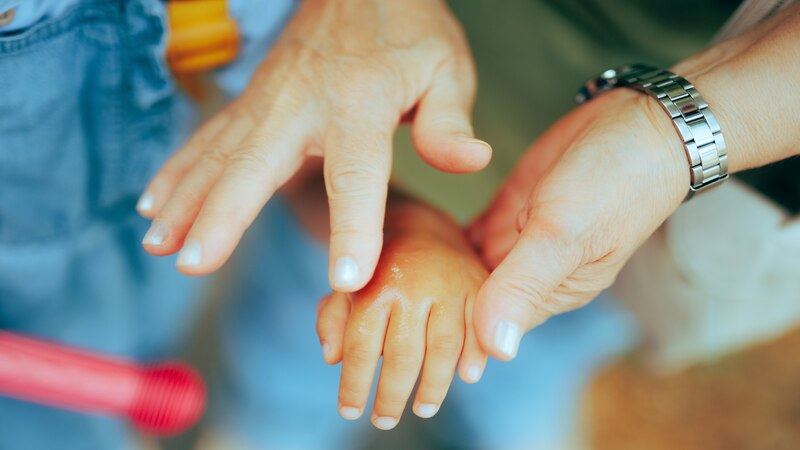
It is quite normal for your little one to try grabbing fuzzy insects that catch their attention very quickly. The innocent kids have no idea about bee stings and the pain that they have to undergo if they get stung. And they can also get stung by a bee when they are playing in the garden or anywhere outdoors. Whatever be the reason, a bee sting is very painful and it is important that the sting is removed as soon as possible in order to avoid any reactions later in your little darling. The sting if left behind will cause severe pain and can lead to swelling too. It can also be life threatening if your child is allergic to it. Given below are some simple tips on how to treat bee stings in children if your little one unluckily gets stung by a bee.
How To Treat Bee Sting In Children?
When bees sting, they leave behind their stinger. The venom which is rich in proteins can have an impact on your child’s immune system thus causing pain and swelling. It becomes important that you treat a bee sting as soon as possible. For this you can do the following:
- Immediately try to get rid of the stinger from your child’s body if he gets stung by a bee. In this manner, you can prevent much venom from entering the little one’s body
- You can either resort to pulling out the sting by hand or use your credit card for the same. The method does not matter, but immediate action is what counts
- Now clean the bitten area thoroughly with soap and water
- Ensure that you apply an ice pack on the affected area for some time. This provides relief from the pain and averts swelling too
- Suppose the little one has unbearable pain, you can ask your doctor’s advice and opt for some pain relievers like Acetaminophen or Ibuprofen</li>
- In case of any kind of irritations or itchiness, you can apply some kind of OTC medications like a calamine lotion or a corticosteroid cream
- It is imperative that the injured area where the bee stung, need to heal quickly in order to prevent any kind of bacterial infections that can occur in the area
- Suppose your little one is allergic to a bee sting, it is imperative that you take the child to a doctor immediately especially if this occurs inside the little one’s mouth. This is because when the mucous membrane inside the mouth start swelling, it can block the airways
Important Tips And Precautions
Apart from the various treatments recommended, here are some vital tips you need to remember when your little one is stung by a bee. This will help you cope up well if a bee sting occurs.
- Scraping the venom away is advised rather than pressing the venom out as there are chances of more venom entering the system when you try squeezing the venom
- The most important thing is to get the sting out as soon as possible rather than focusing on what technique you use to get it out
- Only bees leave their stings behind, while wasps, yellowjackets and hornets do not have any stinger. However they can trigger anaphylactic reaction
When To See A Doctor
There are certain cases when your child requires immediate medical attention specially if you find any indications of anaphylaxis in the child. The most common symptoms include
- Extremely flushed or pale skin
- Breathing issues of any kind
- Nausea or vomiting in the child
- Weak or rapid pulse
- Suppose the child loses consciousness
- Face, lips or tongue getting swollen
The above mentioned symptoms require immediate medical attention although it is not an alarming situation even if any of the above mentioned symptoms occur as there is a treatment for this. Epinephrine is the best medication to treat it. However if the swelling and pain does not wane even after a couple of days, you need to go to see the doctor once more.
Preventing Bee Stings In Children
Bee stings are extremely painful especially for little children and can trigger all kinds of unwanted complications in some people. So given below are some simple guidelines that can be followed to avert your child getting stung by a bee.
- Ensure your little one steps out wearing long sleeved clothing suppose there is a bee hive anywhere near your home
- Make sure you store an EpiPen at home, in case you know that your child can have an allergic reaction to bee stings
- Don’t let your little one take sweets outdoors and eat them as bees are very attracted to sweet dishes
- Make him understand the danger of getting stung by a bee and advice him not to roam around places where bees normally gather. Some of the most bee prone areas include dog poop, garbage and fallen fruits
These simple tips can help your little darling from being stung by a bee and the painful repercussions it brings forth.
Has your child ever been stung by a bee? What measures did you take to treat it? Please share it in the comments section below.

